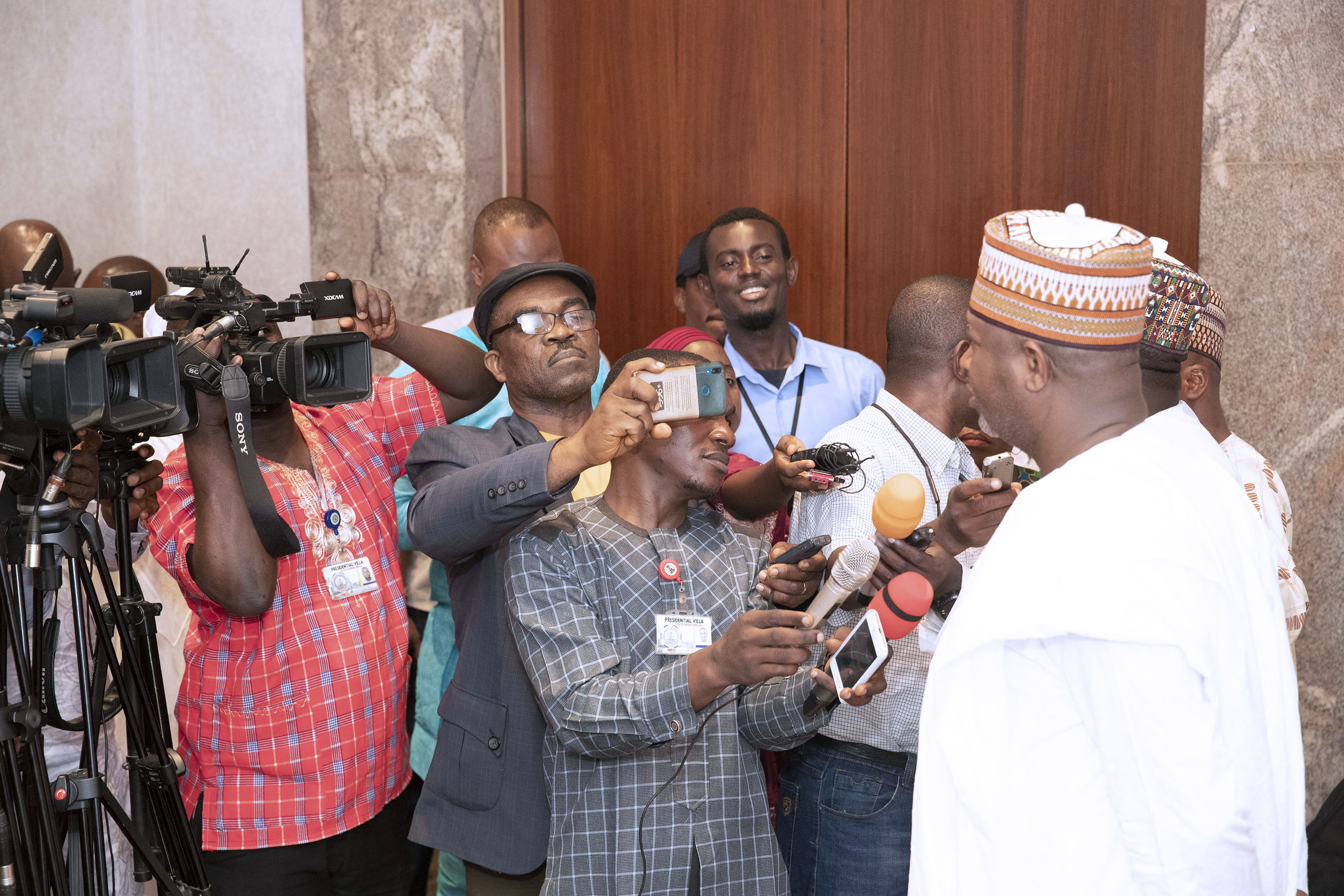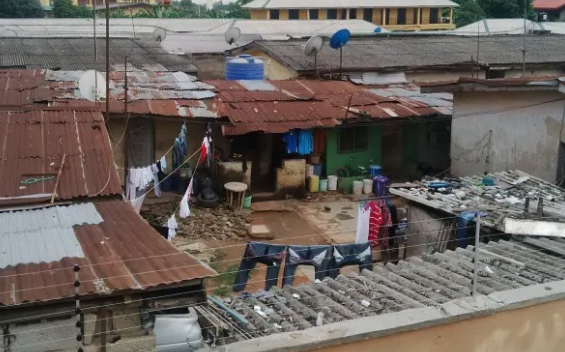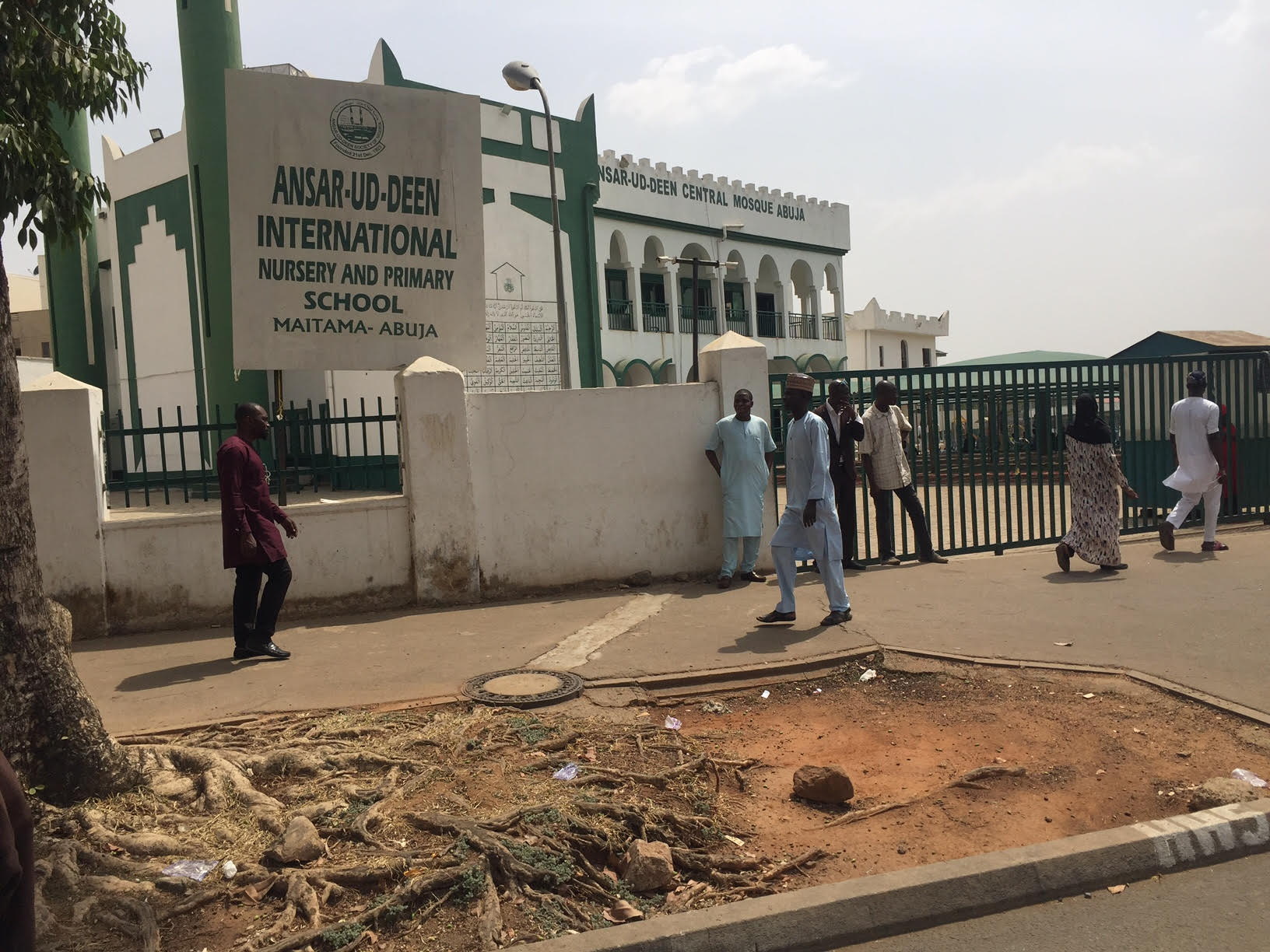BY OLUSEGUN FAFORE
Fatality rate across the globe since the outbreak of Coronavirus (COVID-19) in the Chinese town of Wuhan on December 31, 2019 has signalled that this is not the best of times for humanity. With about 8, 988 deaths and 220,877 people infected in 176 countries since the first death was recorded in China on January 11, 2020, the pandemic has boisterously announced its immensity.
Frighteningly, the virus claims human lives daily while science is still struggles with an absolute response to the scourge. More than before, humanity has become vulnerable, and at the mercy of government policies. From one end of the world to the other, governments and political leaders are facing a whirlwind that is testing their leadership. Leaders are subjected to unusual trials and are desperate for solution(s).
In search of safety from the grip of the easily transmittable coronamicrobe, man is turning to the State for actions that will stem the tide, and provide succour at this difficult period. Sadly, no nation is capable of shielding the other. The ravaging disease does not regard the medically and scientifically advanced nations in its manifestation, so it is every nation to herself first, hence the increasing instances of border closure and entry restrictions.
Advertisement
To humble humanity and heighten our fears, the epidemic started its cudgelling from the most advanced to the not-so-advanced countries of the world. Nations like China, Italy, USA, Spain, Iran, Germany and France are the worst hit, while African countries like Nigeria, Togo, Somalia and Congo have had minimal impact. Only 12 deaths out of the 590 reported cases have been reported so far in Africa.
It may be safe to argue that the worst-hit countries, with records of deaths in thousands since the outbreak of the deadly disease, are ‘host country’ and ‘high-traffic areas’, but a different perspective will be that China is where the virus originated from, other countries classified as high-traffic areas, are inheritors like Nigeria and other sub-Saharan Africa countries, and should have had lesser impacts as well.
The truth is that danger is looming and humanity is under attack. While the response strategies by Nigeria and some other countries may have contained the spread of the deadly disease, especially in Africa; this terrifying development has justified the need for increased collaboration and support amongst the nations of the world. Humans have to come together to protect their turf.
Advertisement
The hurried spread of Coronavirus across the globe has shown that we are closer than the flight time from one region to the other suggests. People from one continent are just one person away from contingents from other continents. Asians are not far from Africans, so are Australians close to Americans, because there is no distance in human linkage(s).
We now know that the world is one small circle that can be covered in just few days. There is no better authentication of this statement than the number of human victims succumbing to the lethal calls of microbes globally. The fact that a disease starts in a remote part of the world and travels across the hemisphere to other parts in hours proves that we are not as isolated as we had always thought.
Outbreaks of pandemics like HIV/AIDS, Ebola and Coronavirus are compelling enough for us to rethink our humanity. More than wars, epidemics are greater threats to humankind. It is therefore important that global leaders, multilateral agencies and international organisations align on investment in critical health infrastructure and scientific breakthroughs to sustain our reign on planet earth.
Microbes and diseases are interested in our world. These horrible impostors are keen on displacing us in our hundreds, thousands and millions, if we continue to live the way we have always lived and refused to exploit our mutual strengths. For pandemics, the fate of Africa is always a concern to the global health community. This is because of the continent’s history of poor investment in health care and hindered scientific advancement.
Advertisement
The African continent was not known to stand-up to its health challenges, or any global health problems. Until the containment of Ebola outbreak in 2014 when Nigeria offered the best of Africa to the world, no one ever thought that there could be a coordinated response to a pandemic by Africans.
As one of the immediate destinations of the hemorrhagic fever (Ebola) which originated from Liberia when thousands were sick and dying in the West African regions of Guinea, Liberia and Sierra Leone (28, 616 cases and 11, 310 deaths), Lagos was gripped by fear and thrown into panic because of the devastating statistics.
The epidemic claimed the life of Dr. Ameyo Stella Adadevoh, the Lead Consultant Physician and Endocrinologist at a private hospital in Lagos, who remains the heroine of the battle against the Ebola pandemic in Nigeria, but the capacity of the State to speedily deploy resources to contain the spread of the deadly disease and limit casualties to 8 deaths out of the 20 cases was globally commended by the time we defeated the outbreak in September 2014.
Lagos State Government showed the world what Africans could do in times of crisis to forestall a continent-wide spread of dreaded diseases. The promptness and efficiency of the State response system protected Nigeria’s over 22 million population, occupying a landmass of approximately 3345km2 , from the highly infectious disease.
Advertisement
The averted calamity, considering that Lagos population density was 20, 000 per persons per square kilometre in built up areas, would have been colossal. Poor management of the situation would have spelt a total disaster for the country, and perhaps Africa’s over 1.2bn people.
That was a global tragedy contained. Really, such an incident should attract and induce multilateral support, in form of capacity building and investment in health infrastructure in certain areas of the world. Weaknesses or lack of capacity in certain locations in the face of pandemic outbreaks endanger the whole world, no matter how distant anyone may be from the originating country. Before Coronavirus, China was very far, right?
Advertisement
Locations like Lagos are central to global wellbeing and progression of human health agenda for a number reasons. Notable amongst these is that the world cannot afford a weak link in the aggressive campaign for health security and wellbeing.
For a destination with two domestic airports, an international airport and two seaports, which are adjudged to be the largest and busiest on the African continent, a national or subnational government can only do little in combating security, socio-economic and health challenges or threats, when they emerge from the interconnectedness of our world.
Advertisement
Lagos is only exemplary in fighting the scourge of COVID-19 because of deliberate government policy and leadership commitment to quality public health. The Governor, Mr. Babajide Olusola Sanwo-Olu, before the outbreak had taken a strong position that made the State response to the menace adequate.
As Incident Commander, his outlook inspired great confidence in the Lagos State Incident Command Team battling the menace of the deadly disease in Lagos, but would this have been the story if Africa was the origin of this deadly virus?
Advertisement
What would the pressure on Lagos facility and the outcomes of the unanticipated stretch of the State health facility and preparedness for incidents, which have drawn commendations from far and near, especially by the World Health Organisation (WHO) been?
Yes, since the detection of the first case of Coronavirus on February 27, 2020, the Lagos State Governor, Mr. Sanwo-Olu has remained resolute in curbing the spread of the virus and preventing human casualty. But in reality, megacities like Lagos and other densely populated regions in the world require increased global support and collaboration towards improving healthcare and proving world-class facility. This will not only strengthen the State’s capacity to combat situations such as this, but also bolster its ability to provide support for other destination in the region during emergencies.
So far, Governor Sanwo-Olu’s decisions and actions have significantly moderated the possible spread of the microbe and doused fears that Coronavirus could sweep the entire country in matter of days. To manage the situation, Lagos State activated its emergency health management and response framework, embarked on a mass enlightenment campaign about the importance of personal hygiene, closed schools and prohibited public engagements with more than 50 participants at a single location in the State.
Some of these decisions are tough because of the socio-economic texture of Lagos. But indeed, times are hard, and only tough decision could help humans chase microbes off our streets. As social animals, the chances that these aliens will creep into our system are very high, and definite, if we fail to demonstrate a certain level of watchfulness over ourselves. We need to help the response system work by following simple guidelines. When government demonstrates political will, citizens should reciprocate with commitment.
But more importantly, it has become better known that our spaces in the world are shared facilities. Therefore, we need to increase our humanity. Leading nations, global leaders, civil society activists, well-meaning individuals, international organisations and multilateral agencies, need to rethink what our investment priorities should be. The focus of innovation and scientific advancement need to shift to healthcare infrastructure and systems in high population density regions of the world.
Fafore is the executive assistant on public relations and new media to the governor of Lagos state.
Views expressed by contributors are strictly personal and not of TheCable.






